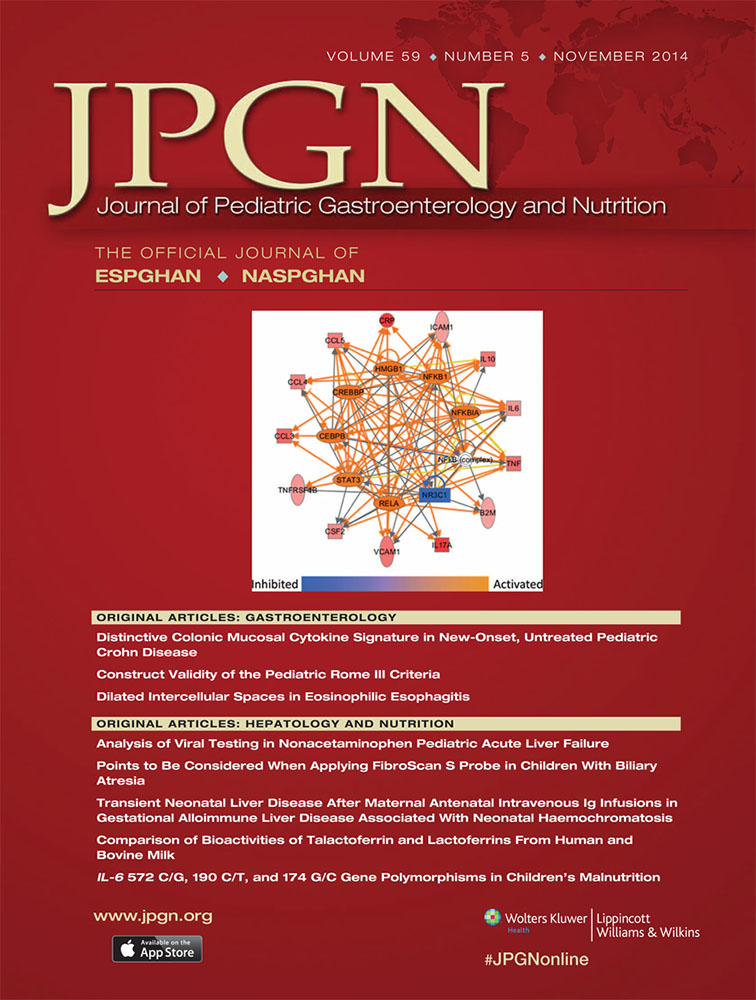Tolerance of Formulas Containing Prebiotics in Healthy, Term Infants
www.clinicaltrials.gov registration number: NCT00543673.
The authors are employees of Abbott Nutrition.
ABSTRACT
Objective:
The aim of the study was to compare infants' gastrointestinal tolerance of formulas supplemented with 2 different levels of galacto-oligosaccharides (GOS) versus a control formula (CF) or human milk.
Methods:
Healthy, full-term infants (n = 180) were enrolled in this 3-group controlled, double-blind, multicenter study, and a concurrently enrolled, nonrandomized human milk–fed group (HM) by 8 days of age. Infants were randomized to be fed formula supplemented with either 4 g (EF4) or 8 g (EF8) GOS/L or a CF until day of life (DOL) 119. Infants were to be seen at DOL 14, 35, 56, 84, and 119. Parents were to record detailed 24-hour information about intake, tolerance to feedings, and stool patterns and consistency each day from enrollment to DOL 35, and for 3 days before DOL 56, 84, and 119. Stool consistency was scored on a 5-point scale as watery (1), loose/mushy, soft, formed, or hard (5).
Results:
The mean stool consistency score was higher in the CF group throughout the study (CF > EF8 and CF > HM for all study periods and CF > EF4 from DOL 15 to 35, P < 0.05). There was a significantly higher percentage of watery stools in the EF8 versus the CF group from study day 1 (SD 1) to DOL 14 (P < 0.05), but no differences between the groups in number of stools per day. The percentage of feedings with spit up and/or vomiting within 1 hour after feeding was significantly lower for HM versus EF8 and CF from SD 1 to DOL 14 (P < 0.05).
Conclusions:
In this clinical study, milk-based term infant formula (Similac Advance) with 4 g GOS/L was well-tolerated in terms of stool consistency and additional measures of gastrointestinal tolerance by newborn infants through the first 4 months of life.




